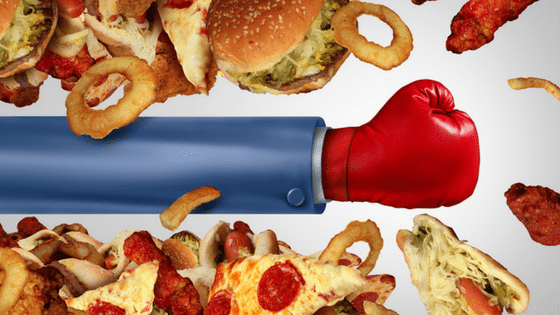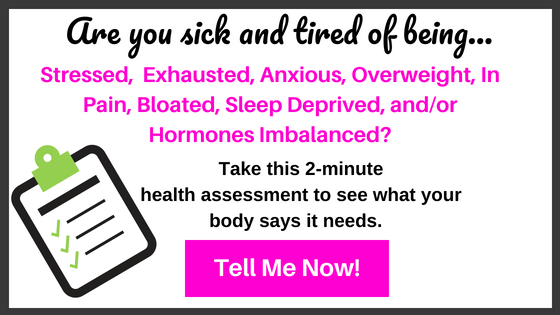Leptin- How to Control this Hunger Hormone?

Some of the links in my blogs may be affiliate links. See my disclaimer page for more information.
What Is Leptin?
The word Leptin originates from the Greek word “Leptos” which translates to “thin.” Leptin plays a huge role within the body in regards to hunger and appetite. It is also essential in behavior, metabolism, and energy output and intake, making it one of the most vital hormones derived from fat tissue in your body.
What Does Leptin Do?
In simple terms leptin is the hormone that says ‘stop eating I’m full’. This hormone acts on the brain and is connected with body weight and the regulating of food you eat.
Leptin functions like an appetite suppressor. Experts believe that leptin can also be responsible for regulating ghrelin hormones. I talked about in Ghrelin hormones in my blog What is Ghrelin and How to Control this Hunger Hormone? It is leptin that sends signals to the brain to recognize that the body has enough immediate energy stores, or simply that you have eaten enough.
Unfortunately, studies have shown that people who are obese have often become resistant to the signals of leptin, despite the fact that they have high amounts of leptin in their body. Normally, the more fats you have stored, the higher your leptin levels should be. However, some factors also need to be taken into consideration such as the last time you ate food, as well as your sleeping patterns.
How Does Obesity Affect Leptin Levels
Fat tissue within the body is responsible for producing the Leptin hormone. Since it is secreted by fat cells, it would be easy to assume that the more obese a person is, the more leptin they have available to tell their body they are full. You would also assume that their weight would normalize once again.
This is great in theory; however, when dealing with damaged endocrine glands and metabolism pathways, it becomes more involved than that. The leptin is there, but it just isn’t doing what it should.
Leptin is the hormone that produces a feeling of satisfaction or fullness and signals the body when it has eaten enough food. When functioning optimally, this hormone may also make it easier to resist the temptation to eat high-calorie foods.
Leptin circulates within the bloodstream, relaying messages to the brain regarding energy storage. This is how it operates in regulating metabolism and appetite.
A percentage of people suffer severe obesity due to a leptin hormone imbalance. Due to this problem, they continually want to eat more and more food. There have been numerous studies and trials for treating the imbalance and the obesity problem in general.
They did show some signs of weight loss. However, the results of the studies have been inconclusive and are still continuing.

Leptin Resistance
Leptin is linked directly to insulin levels. The body perceives leptin resistance as starvation. This ends up activating multiple mechanisms to increase fat stores as opposed to burning excess fat stores.
The body releases leptin as it should but the brain does not respond to the leptin trigger as it should. Simply put, the brain does not realize the stomach is full so appetite is not suppressed. This condition is characterized by obesity, blood-sugar issues, high blood pressure, stroke and heart disease.
Elevated leptin levels experienced with leptin resistance may also age you faster than normal, decrease fertility and be a contributing factor to obesity. Signs of leptin resistance can include having difficulty sticking to changes in your health regime and difficulty in improving a health issue or losing weight.
Leptin resistance is a complex situation involving the endocrine system. The good news is that you can make lasting changes; however, it is going to require more than willpower and counting your calories. Many obese individuals have endocrine issues or a damaged metabolism which needs to be addressed first. This does not necessarily mean that you need medications. I have seen these issues reversed with the right nutrition and supplementation.
Fixing Your Leptin Levels
Once we understand how the hunger hormones work; Ghrelin the hunger hormone and Leptin the satisfaction hormone, we can determine if our body is in balance. Your Leptin levels are more than likely out of tune if you happen to be eating all day long and never seem to feel full. The good news is that with some changes to your lifestyle, you will be able to rebalance your hormones and get back to healthier levels.

How Cravings Are Related To Leptin Levels
Craving certain foods or wanting to eat at certain times could indicate that your Leptin is not functioning optimally. This could be the real reason you want to snack at night, have had trouble following a diet and have become overweight.
Leptin is an amazing hormone responsible for causing feelings of fullness. It is secreted by fat tissue; therefore, the more overweight an individual is, typically the higher their Leptin levels are. Leptin is involved in the metabolism of fat. It monitors how much energy an organism ingests by surveying the balance of energy within the body.
How Leptin Regulates Hunger
There are 3 main ways that Leptin regulates the feelings of hunger. It promotes the production of an appetite suppressant known as a-MSH. It also counteracts another feeding stimulant known as “Anandamide.” (anan·da·mide) Additionally, leptin counteracts a potent feeding stimulant known as “neuropeptide Y” which is secreted by specific cells in the stomach and the hypothalamus in your brain.
Individuals who have lots of cravings and never feel full and who are overweight may be suffering from Leptin resistance. There are numerous health problems tied to this; obesity and blood sugar problems are just two of them.
Studies have shown that high Leptin levels may also be connected to decreased fertility and speed up the aging process. If you are having trouble sticking to positive changes in your health routine, it may be possible that you are dealing with a Leptin resistance.
Regulating Your Leptin Levels
Since hormones are part of our endocrine system, regulating your Leptin levels is an involved issue that will take more than strict willpower and calorie restriction. The following points will help you get your levels back into balance:
1. Eliminate fructose, sugars, simple starches and refined foods
I’m not just talking about typical sweets like candy, chips, and donuts. You will also need to cut out sweetened cereals, all white bread, white potatoes, and corn. This will not be easy. You may have to slowly reduce these things one at a time. I never suggest going cold turkey, because almost always you will quit.
2. Optimize your sleep
Optimizing is not necessarily more hours, it also means better quality too. I have a ton of helpful tips to do that here in my blog series How to Get More Sleep so be sure to take a peek at that.
3. Eat healthy fats and a large amount of protein for breakfast.
A coffee and a donut will not cut it when you are trying to control your hunger hormones. The reason why breakfast is the most important meal of the day is that you are breaking a fast. Your body has been without nutrients for many hours. If you don’t eat you are slowing down the metabolism.
A suggested option is to have scrambled eggs cooked in olive oil. You don’t even have to go traditional breakfast foods. If you want a stir-fry have a stir-fry. That will give you lean meats, veggies, and good fats.
4. Get some vitamin D
Some foods you can eat more of to provide more Vitamin D are eggs, milk, yogurt, shiitake mushrooms, canned and wild caught fish.
You can also do this by just getting fresh air outdoors for a time period during the day. If you live in a place that you are lacking sunlight for an extended period of time; you may need to supplement.
Not all supplements are created equal. You could actually do more harm than good by shopping at your local department or drug store. I take Solle Vital which has chlorophyll that helps my body absorb more Vitamin D. You can check it out here: Solle Vital
5. Omega-3 fatty acids
It is really hard to get in enough Omega 3 fatty acids. It is even harder to get in the correct ratio of Omega 3 vs Omega 6 into your diet. Excellent sources include chia seeds and fish. This is another one you just might need to supplement especially when it comes to the mercury that is found in some fish.
I personally supplement with SolleMegas™. It is a 100% plant-sourced product that provides powerful plant omegas including omegas 3, 6, 7, and 9 and is carefully formulated with our mind and body harmonized approach.
SolleMegas contains Sea Buckthorn, Chia, Flax Seed, Sunflower lecithin and Black Currant. You can check it out here: SolleMegas
6. Cut down on your Omega-6 fatty acid consumption.
This comes from conventional meats, vegetable oils, and grains. Remember I said you need a ratio of fatty acids and these are not the ones you want to be eating. Reducing these can also help reduce inflammatory responses in your body too.
7. Eat meals more slowly.
It takes the brain time to recognize and respond to the hormone’s signals. Gorging means you will consume more than you need to. Your brain won’t get the signal quick enough from your gut to tell you that you are full until you are uncomfortably full.
To do this try putting your fork down between bites. Be very aware of your chewing and make sure you are chewing a lot. You shouldn’t watch TV or be on your computer or phone while you eat. This will ensure you are not too distracted to notice the signals.
Now it is your turn…
Next time you feel full think about how your hormones are telling your brain that you should stop eating. Take control of your eating habits and your health by working with your hormones not against them!
If you are looking for more tips, resources, and support in your wellness to weight loss journey I have an online community you are welcome to join called Journey in Wellness. Join and get some extra free resources emailed to you this week!











I needed this article! I am starting a new diet and am always on the lookout for helpful tips!
Great post! I studied nutrition and these are all things I’m doing. I really like your writing style !
It’s really more on changing ones habits and lifestyle. I’ve tried leptin diet before, it really worked, unfortunately the undisciplined side of me got the better of me.Yeah discipline is the key.
I am not familiar with Leptin, thanks for the info. I only know L-Carnitine to control cravings.
I have never heard of leptin. I only eat a few meals a day and intermediate fast I find it makes a difference with my hunger.
A really good example of why a healthy balanced diet is important, a great read keep it up!
Wow! This is one of the most informative reads on this topic I’ve come across in a long time. I agree with you about the huge role getting the right amount of sleep plays in all this. If I’m short-sleeping it always impacts my eating. Getting the right oils balance was a great reminder too. I use Udo’s – when I remember!
I’ve never heard of this hormone before, but it’s really interesting the impact it can have on your hunger!
I recently switched from a high carb breakfast to a high fat/protein breakfast and I’ve been feeling less hungry during the day. Interesting to know that hunger hormones could be playing a part!
Good for you it is great when you are so intuitive to your body’s needs.
Wow…this is do detailed and so I formative. I’m not overweight (by my own standards) bit I’ve been suffering with a sweet tooth since I have birth. I’m obsessed with carbs and sugar. These tips are amazing. Thanks for sharing.
Your very welcome thanks for the feedback! Good luck with the tips it is tough breaking the habit!